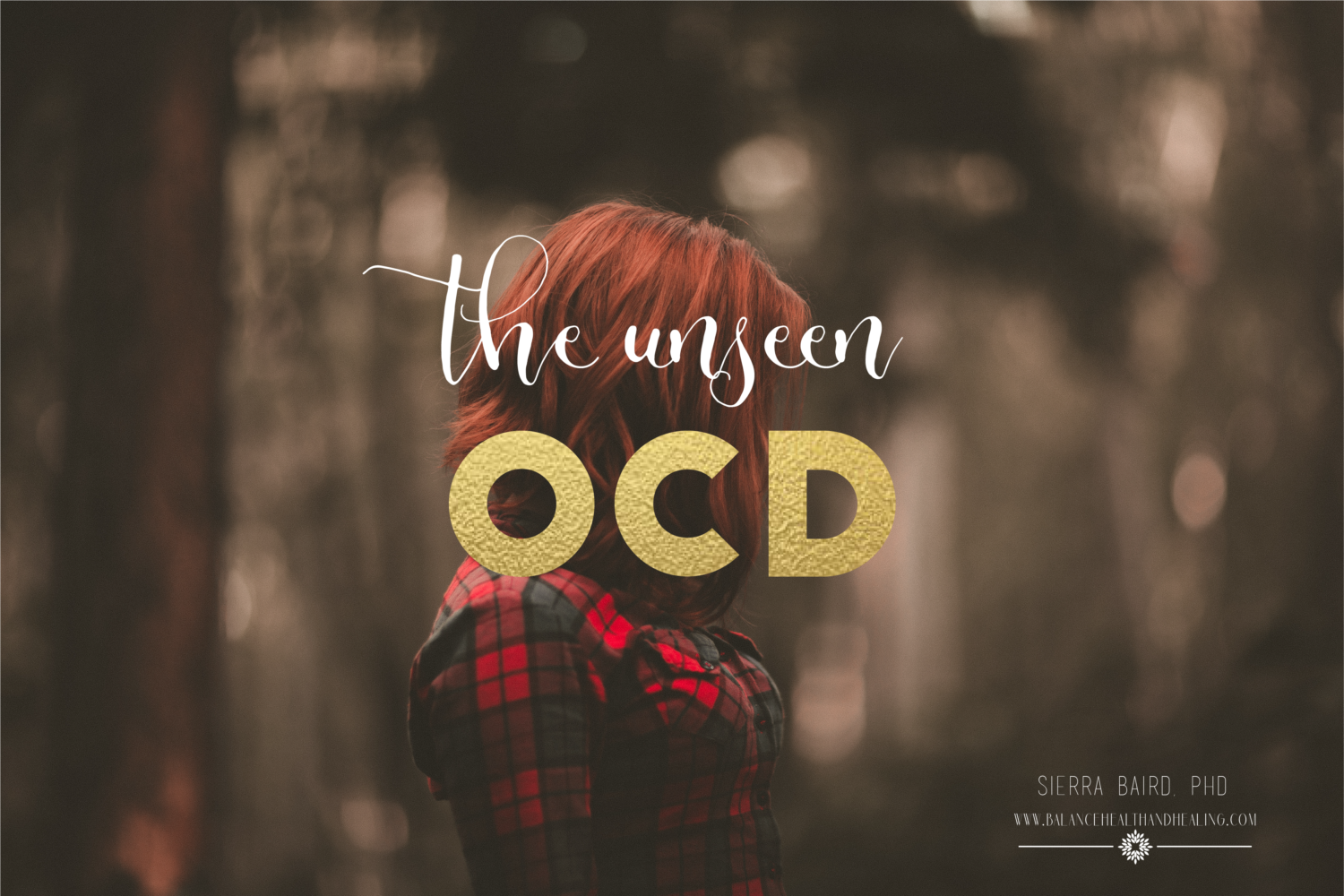When people think of OCD, they often think of what they’ve seen on TV. Like the person who washes their hands uncontrollably, or the detective who has to touch every lamp post they walk by. And while these are some of the ways OCD will show up, it can also show up in less obvious but still very distressing ways.
OCD is diagnosed when a person experiences obsessions and/or compulsions to the extent that it interferes with their life. In general the people who I’ve worked with over the years who have OCD are smart, achieving, kind, conscientious people. Since OCD is a disorder of thought, and so much of what is happening is unseen, it can cause someone a lot of emotional pain without the people around them even being aware that it’s happening. I want to talk about some of the ways OCD will show up.
OCD Themes
OCD will generally show up in themes, and the more common themes for OCD are violence and sex. So what does it say about people who have OCD that they have bizarre and extreme thoughts about taboo topics? The answer is that it means absolutely nothing. In fact, people who don’t have OCD also have bizarre and extreme thoughts about these things.
In 1992, Purdon and Clark did a study of normal intrusive thoughts. They asked a large sample of people who did not have any diagnosis, if they have thoughts about common OCD themes. Below is a list of some of the thoughts. And to the right of each thought is the percentage of women and men who have had those thoughts.
Thought Female % Male%
Running car off the road 64 56
Hitting animals or people with car 46 54
Jumping off a high place 39 46
Hurting family 42 50
Home unlocked, intruder there 77 69
Sex with unacceptable person 48 63
Strangers naked 51 80
Sex in public 49 78
Disgusting sex act 43 52
Another common OCD theme is religion or morality. This type of OCD is called Scrupulosity, and it often causes the person to worry (in a consuming way) if they are doing the right thing or not. For example, someone might learn in church that they should be striving for perfection, and that they should always be kind to people. When they get in a disagreement with someone they might find it extremely distressing, to the point that they obsess about it for hours, days, and weeks. They might rely on confessing to religious leaders or a trusted family member for what seems to be normal and common experiences.
Now, remember, the people in this study did not have OCD, or any other psychological disorder. So, extreme and bizarre thoughts about taboo topics is very common, and in a way, it’s just another part of the human experience. The difference between the general population and people with OCD is that people who don’t experience OCD are able to move on from these thoughts, and people who have OCD find that the thoughts get “stuck.” Like their mental radio got stuck on repeat and they can’t move on to the next thought. Getting stuck in this way usually causes significant anxiety.
Do I have OCD?
Since the general population also experiences extreme and bizarre thoughts, it might be confusing to tease apart if you have OCD. Think of it as a spectrum. On one end people feel little to no distress about unwanted thoughts. And on the other end people feel intense anxiety and panic about those thoughts. One general approach to find out where you land on that spectrum is to assess how long you think about those unwanted thoughts. A general rule of thumb would be that if you spend more than an hour a day on them, that could be a sign that you might experience OCD.
Another way to assess if you have OCD is to take note of if your unwanted thoughts interfere with your daily life. For example, if you have the unwanted violent thought of hurting someone does this change what you do in a day? Do you start to avoid being alone with people or even going out at all? This would be an indicator that you might experience OCD.
Everyone’s experience is unique to them so it may be difficult to clearly know if you have OCD. If you’re unsure and want to know, it’s best to consult with a psychologist who can assess your experiences and come up with a helpful treatment plan.
New Group
At Balance Health & Healing, we are starting a group that is committed to helping people learn about and manage OCD. It will start the third week in January and be held Wednesday from 4:00-5:30. If you are interested and want more information about it email me at Sierra@balancehealthandhealing.com.

